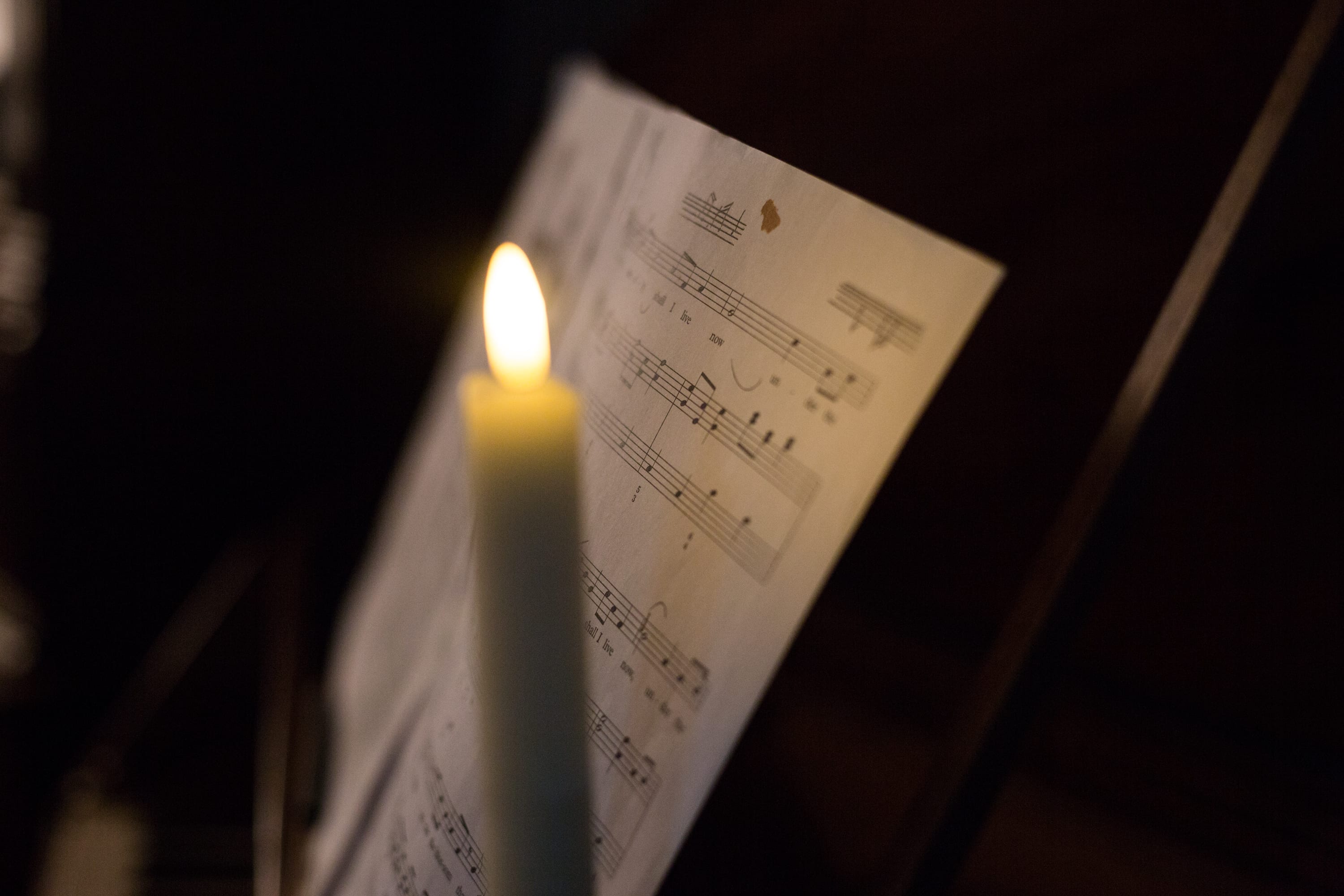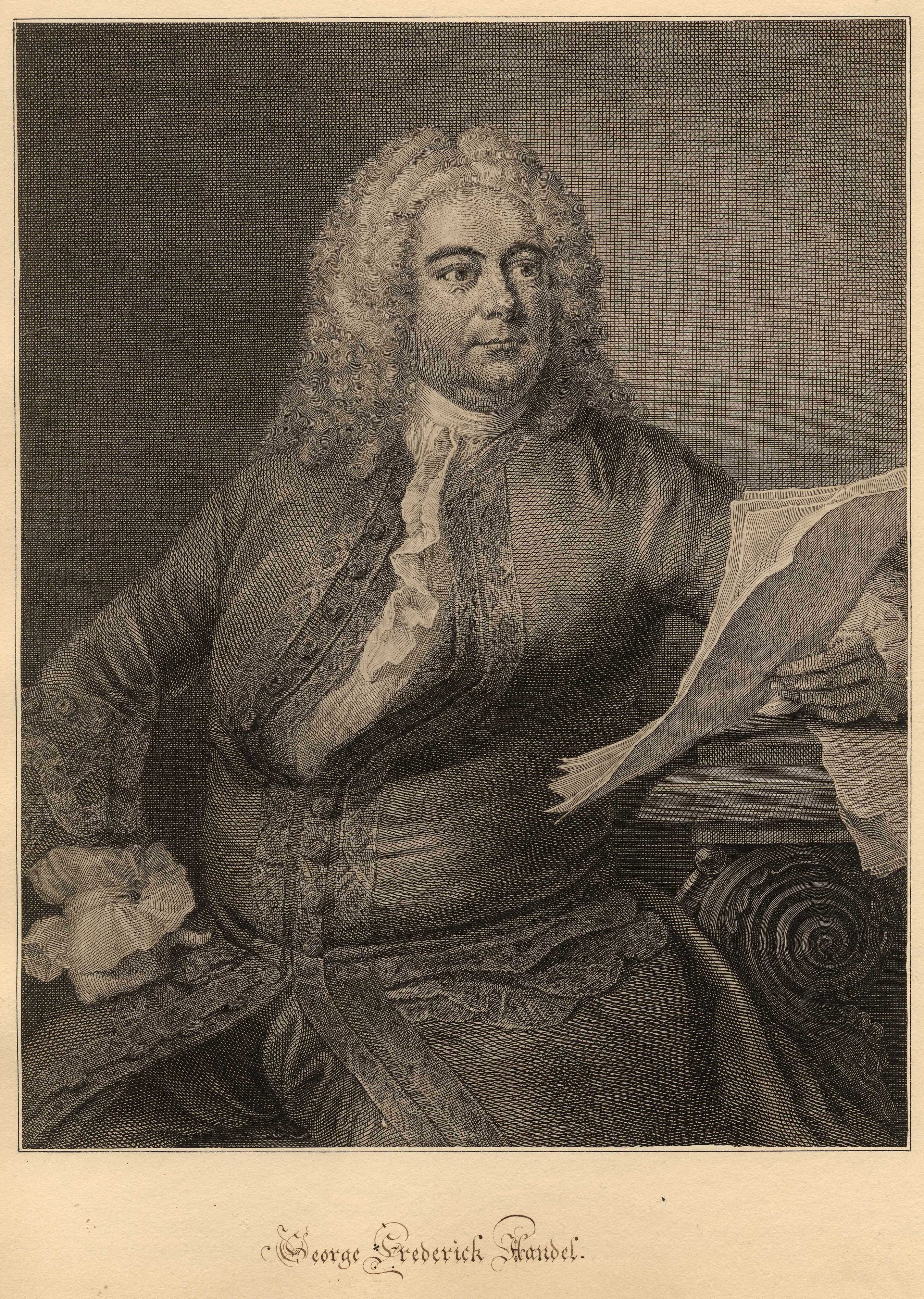THEODORA (HWV 68)
Libretto: Thomas Morell, after Robert Boyle, 1687: "The Matyrdom of Theodora and Didymus"
First performance: 16th March 1750, Covent Garden Theatre, London
Cast
- Giulia Frasi (Soprano)
- Caterina Galli (Mezzo-Soprano)
- Gaetano Guadagni (Alto-Castrato)
- Thomas Lowe (Tenor)
- Henry Theodore Reinhold (Bass)

Synopsis
Act I
The scene is set in 4th century Antioch, which is occupied by the Roman army. Valens, the Roman governor, proclaims that in celebration of the Emperor Diocletian’s birthday all cititzens must make sacrifice to Jove and join in a feast to the Emperor’s honour. Those who refuse to participate will be punished or executed. He charges Septimius with carrying out his orders.
Didymus, a Roman soldier, asks that those whose conscience forbids them from particpating be protected from punishment. But Valens is unbending and questions the soldier’s loyalty to Rome. Didymus turns now to Septimius with the same argument. Septimius suspects that Didymus is secretly a Christian, and admits that he too would prefer to show mercy to those who refuse to celebrate. However, he is a loyal Roman and will carry out his orders.
In the Christian community, Theodora and Irene are praying. A messenger arrives and warns them of Valens’s commands. But Irene leads the community in a reaffirmation of their faith. Septimius arrives and warns them of the punishment they face – a punishment Theodora is happy to embrace. However, rather than have her executed Septimius takes her away to a brothel where she will be prostituted to the Roman soldiers.
Didymus arrives too late to save her, and sets out to release her. The chorus pray to heaven for his success.

Act II
The Romans proceed with their celebrations. Valens sends Septimius to Theodora with an offer of clemency if she makes a sacrifice before sunset.
In her prison cell, Theodora waits fearfully for her fate. But contemplation of the heaven that awaits her after death cheers her spirits. Didymus persuades Septimius to let him enter Theodora’s cell and rescue her, as Irene prays that God will protect Theodora.
Didymus enters the cell and finds Theodora asleep. She wakes with a start fearing the worse, but Didymus reveals his identity and calms her. She begs him to kill her but he cannot. Instead he dresses her in his uniform and, disguised as a soldier, Theodora escapes the cell leaving Didymus in her place.
The Christians maintian a vigil, led by Irene.
Act III
Still praying for Theodora’s release, Irene is surprised to see her companion arrive dressed in Didymus’s clothes. The Christians celebrate her safe return, though Theodora herself is concerned for the safety of Didymus.
A messenger arrives to tell them that Didymus has been sentenced to death, and that Theodora is now too condemned to die if she is caught. Despite Irene’s efforts to restrain her, Theodora rushes to the Roman court to offer herself in place of Didymus.
Valens condemns Didymus to death as Theodora arrives to save him. Both offer to die in place of the other, but Valens will not let them bargain with their own fates and sends both of them to execution. As they blissfully enter immortality together the Christian community join in a hymn of praise.
(c) Handel Hendrix House
Context
Handel was still showing remarkable creative abilitites when he completed Theodora in his 65th year. This would prove to be his penultimate major work, and it would be a further two years before he produced his final great oratorio, Jephtha.
The omens for Theodora were not good. A week before the first performance on 16th March 1750 London experienced an unprecendented earthquake. Eighty years after the event a witness decribed what had occured:
‘On the 8th of March, 1750, an earthquake shook London. The shock was at half past five in the morning. It awoke people from their sleep and frightened them out of their houses. A servant maid in Charterhouse-square, was thrown from her bed, and had her arm broken; bells in several steeples were struck by the chime hammers; great stones were thrown from the new spire of Westminster Abbey; dogs howled in uncommon tones; and fish jumped half a yard above the water.’
Many people fled London in panic, and were still absent when Handel opened his season a few days later. This would account in part for the small attendance at the three performances given of Theodora that season.
Handel was also concerned about the audience the Christian story with a tragic ending could attract. When told that one of his supporters wanted to buy all the boxes for a particular performance, Handel was heard to comment: ‘He is a fool; the Jews will not come to it (as to Judas) because it is a Christian story; and the Ladies will not come because it is a virtuous one’. London’s Jewish community had welcomed Handel’s 1747 oratorio Judas Maccabaeus, which he had written in celebration of the Duke of Cumberland’s victory over the Jacobites at Culloden, and which was also based on a libretto by Thomas Morell.
Handel was disappointed by the poor reception given to Theodora. When asked by some musicians for free tickets for a performance of Messiah, Handel’s response (recorded by Charles Burney) gives an indication of his bitter feelings: ‘Oh your servant, meine Herren! you are damnable dainty! you would not go to Theodora – there was room enough to dance there, when that was perform’.
The first cast of Theodora included the alto-castrato Gaetano Guadagni, for whom Handel wrote the role of Didymus. It was unusual for Handel to include a castrato voice in his English oratorios, but Guadagni had already appeared with great success in performances of Messiah and Samson, for which Handel had adapted the roles originally sung by Susannah Cibber. In 1762 Guadagni would create the title role in Gluck’s Orfeo in Vienna.
Some years after Handel’s death, Morell remembered working with him on a number of oratorios. He had a particular memory of Theodora:
‘The next I wrote was ‘Theodora’ (in 1749), which Mr. Handell himself valued more than any Performance of the kind; and when I once ask’d him, whether he did not look upon the Grand Chorus in the Messiah as his Master Piece? “No”, says he, “I think the Chorus at the end of the 2nd part in Theodora far beyond it. He saw the lovely youth &c” ‘.
Despite his affection for the work, Handel never revived Theodora.


